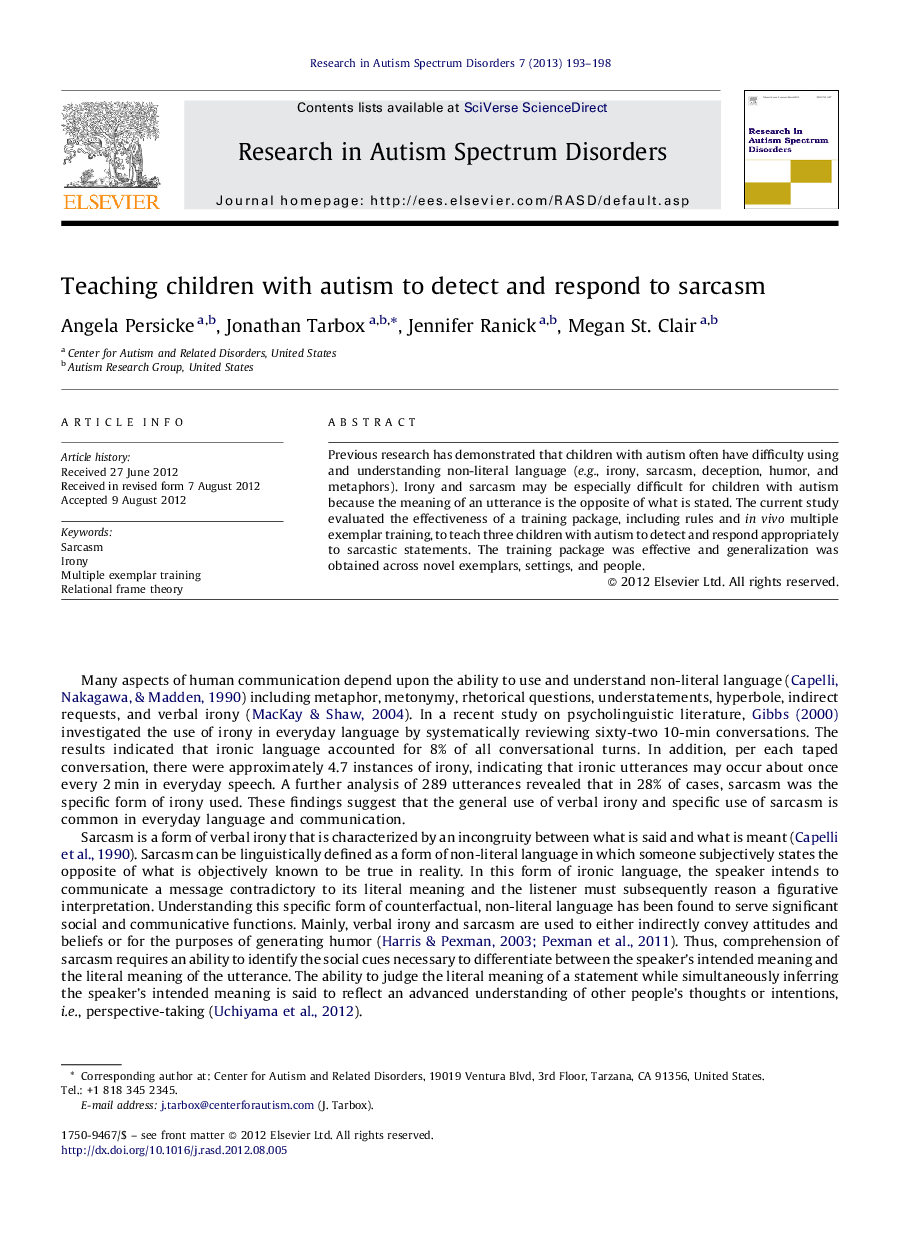| Article ID | Journal | Published Year | Pages | File Type |
|---|---|---|---|---|
| 370593 | Research in Autism Spectrum Disorders | 2013 | 6 Pages |
Previous research has demonstrated that children with autism often have difficulty using and understanding non-literal language (e.g., irony, sarcasm, deception, humor, and metaphors). Irony and sarcasm may be especially difficult for children with autism because the meaning of an utterance is the opposite of what is stated. The current study evaluated the effectiveness of a training package, including rules and in vivo multiple exemplar training, to teach three children with autism to detect and respond appropriately to sarcastic statements. The training package was effective and generalization was obtained across novel exemplars, settings, and people.
► Taught children with ASD to understand sarcasm with multiple exemplar training. ► Generalization occurred across novel people, settings, and sarcastic comments. ► Results are encouraging for research on teaching nonliteral language and cognition.
